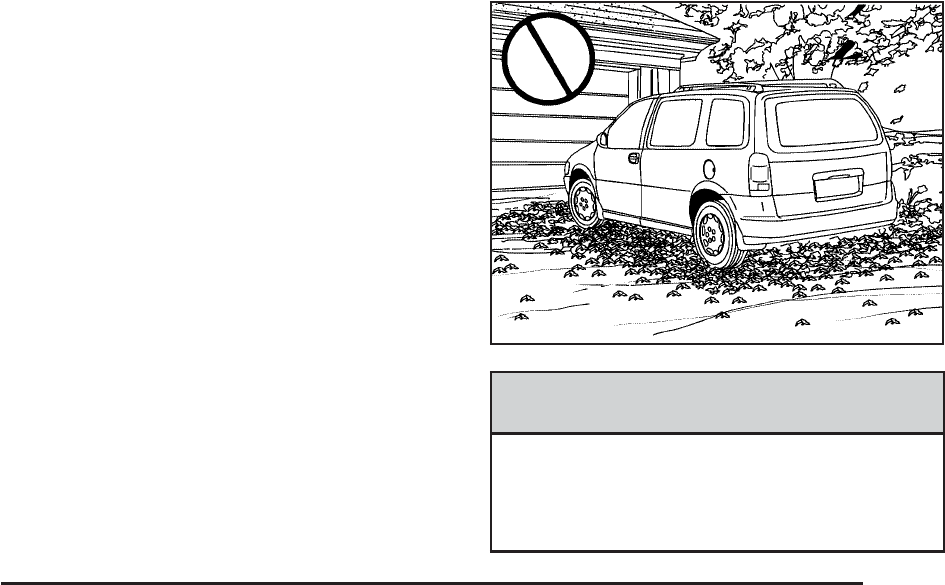
Torque Lock
If you are parking on a hill and you do not shift your
vehicle into PARK (P) properly, the weight of the vehicle
may put too much force on the parking pawl in the
transaxle. You may find it difficult to pull the shift lever out
of PARK (P). This is called torque lock. To prevent torque
lock, set the parking brake and then shift into PARK (P)
properly before you leave the driver’s seat. To find out
how, see Shifting Into Park (P) on page 2-40.
When you are ready to drive, move the shift lever out of
PARK (P) before you release the parking brake.
If torque lock does occur, you may need to have another
vehicle push yours a little uphill to take some of the
pressure from the parking pawl in the transaxle, so you
can pull the shift lever out of PARK (P).
Shifting Out of Park (P)
Your vehicle has an automatic transaxle shift lock
control system which locks the shift lever in PARK (P)
when the ignition is in the LOCK position. In addition,
you must fully apply your regular brakes before you can
shift from PARK (P) when the ignition is in RUN. See
Automatic Transaxle Operation on page 2-35.
Parking Over Things That Burn
{CAUTION:
Things that can burn could touch hot exhaust
parts under your vehicle and ignite. Do not
park over papers, leaves, dry grass, or other
things that can burn.
2-41


















